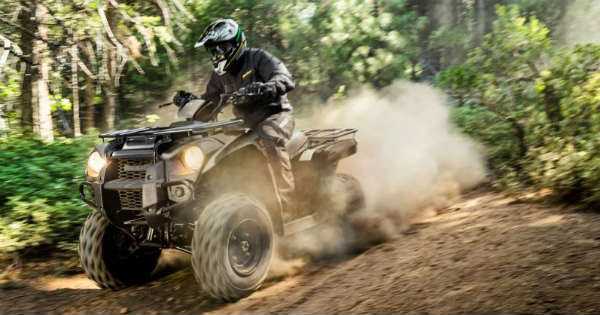Did you know the first ATV was a three-wheeler manufactured in 1968? Impress your friends with this fact at your next party. Are you looking into buying used ATVs? Not to worry! In this guide, we’ll go over what to look for and questions to ask. Want to learn more? Keep reading to find out.

Look at the Tires First
Bring a flashlight with you or use your phone. Shine your tool at each tread block and examine both sidewalls. You’ll want to look for missing chunks of rubber and cracks.
Over time, ATV tires will age and crack like vehicle tires. Tires become dangerous to drive on when they have cracks. If a tire’s cracked and the other tires show the same wear, you might need to replace the entire set.
How Do the Ball Joints and Bearings Look?
Jack up one side of the ATV then grab the tire and rock it in and out. If you feel any movement, you might have a bad ball joint or wheel bearing.
Worn down ball joints and ATV bearings could separate while you’re using the machine. You might need to replace both.
How Are the Shocks?
Examine the top of the shock for moist areas. If you see damp spots, trace your finger over the area. If you notice oil, this is a sign the shock’s worn down.
An old shock won’t lessen spring oscillations. Your tires will rise in the air for a longer period after each bump. This can lead to reduced machine stability.
Examine the Constant Velocity Boots
The constant velocity (CV) boots make sure the grease stays inside the rotating joint. If the CV boots begin to wear down, it will tear at the band clamps or between the pleats.
Grease will get flung outside of the joint, and water and sand will get inside. These elements can destroy the joint. If you discover dirt or sand in the joint, you’ll need to replace the CV joints.
If you can, take a look at all eight joints. Remove the splash guards so you can search for grease signs on the outer and inner CV boot. Separate the pleats so you can search for tears or small cracks.
Is the Engine Leaking?
Bring a clean rag with you when you’re checking out used ATVs. Before you buy an ATV, you want to examine the valve cover and head gasket. Oil leaks from these two areas can cost over $300.
With your clean rag, wipe around the valve and head cover gaskets. If there is fresh oil on your rag, the owner might need to replace the gaskets.
Take a Look at the Air Filter
If you remove the air cover and see a lot of dirt on the filter, this is a sign of poor maintenance. It doesn’t cost a ton to replace an air filter.
If you see any signs of rodents or mice, don’t buy this ATV. Walk away and keep looking for a used ATV with better maintenance.
Inspect the Brakes
You’ll want to examine the thickness and pad condition of the brakes. If the brake pads are new, they will appear super thin. This makes it difficult to see if they’re worn. Bring along a friend to check the brake pads with you.
Make use of a flashlight and an inspection mirror to check the thickness of ATV brake pads. Are there deep gouges in the rotor? A complete brake job could cover over $175.
How Are the Fluids?
Haul out the transmission and engine dipsticks. Are there metallic pieces in the oil? If so, don’t buy the machine and keep looking. This is a sign that the machine wasn’t well maintained.
Look for an owner who has kept their ATV up to date.
Questions to Ask the Seller
You’ll want to find out how long they have owned the machine. If the bike has had many owners, you might want to steer clear from it. This might mean they have faced issues with the machine and sold it to get rid of it.
Find out the reasons why they want to sell the bike. Does the owner want to update to a larger model? If the buyer’s selling because they need some money, you might have a chance to negotiate the price.
Find out if there have been any accidents with the ATV. Ask if an accident could have damaged the undercarriage or frame. If so, make sure its included in the sales contract. If you’re a beginner, learn more about ATV safety tips.
Where did they store the ATV? Even the most careful owner will have left their vehicle outside, exposing it to the elements. The sun can break down, and the paint fades over time. Rust occurs when you leave the vehicle out in the rain.
Aim to find an owner who has stored their ATV indoors in a well-ventilated garage.
Where to Look When Buying Used ATVs
Check out the Facebook marketplace. You can set up a series of alerts, so you’re notified when something gets posted about an ATV.
If someone posts about an ATV, you can reach out to them right away. This will help you reach out to sellers before too many people write them.
Want to Learn More?
We hope you found this guide on buying used ATVs helpful. Make sure you take the time to look at various parts of the ATV before deciding.
Don’t forget to bookmark our site. This way, you won’t miss out on any of our resources.

